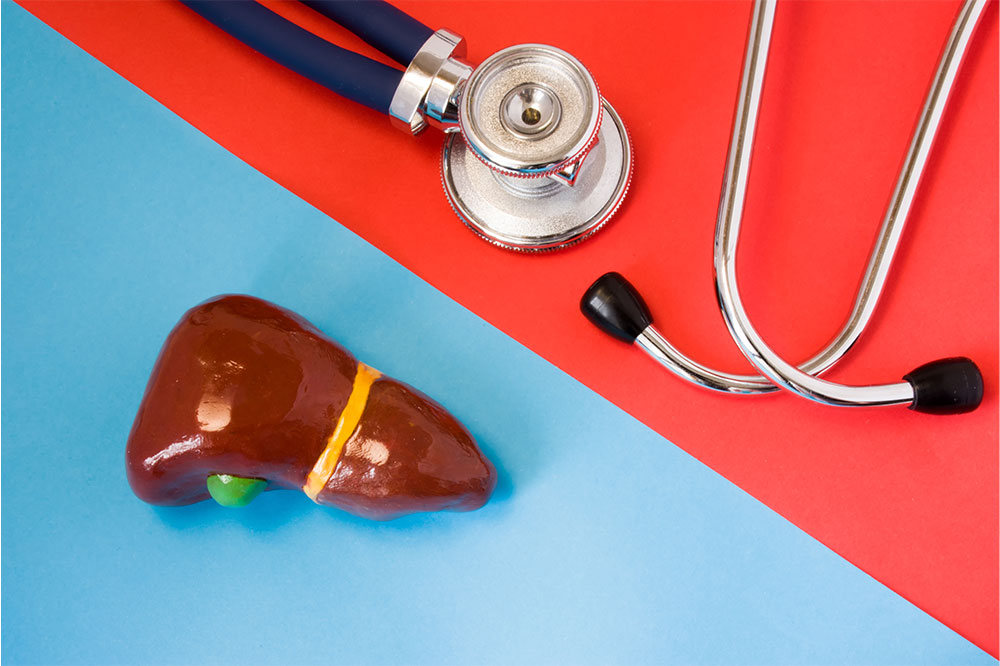
Importance of the liver function test
Liver diseases rarely show symptoms in their initial stages, making it challenging for doctors to diagnose them early on. It is also true that early treatment can help treat the disease and prevent permanent scarring of the liver. The best alternative is to screen your liver using tests like liver function to monitor the organ’s health. It’s beneficial for high-risk patients who may have a damaged organ, have type 2 diabetes, or have a high BMI.
Causes of liver diseases
The liver regulates the toxic chemical levels in our bloodstream, filters the blood from the digestive system, and then transfers the blood to the rest of the body. Other underlying or preexisting diseases and lifestyle are the two leading causes of liver diseases.
Diseases that lead to liver disease are:
- Viral infections that affect the liver, like Hepatitis A, B, and C
- Genetic diseases like Hemochromatosis and Wilson’s disease
- Autoimmune diseases like autoimmune hepatitis, primary biliary cholangitis
- Cancer in the liver or bile duct and liver adenoma
Lifestyle habits that can lead to liver diseases are:
- High BMI
- Uncontrolled use of herbal supplements
- Side effects of certain prescription treatments like antibiotics, steroids, and birth control pills
Symptoms of liver disease
The symptoms of liver disease only appear once the disease is advanced. Signs that indicate a potential liver disease include:
- Yellowing of skin and eyes
- Pain and swelling of the abdomen
- Swelling in legs and ankles
- Darkening of urine and pale stools
- Unexplained and continuous exhaustion and fatigue
- Nausea
- Loss of appetite
- Frequent bruising
Common approaches for diagnosing liver diseases
Doctors use the following tests and screening methods to diagnose liver disease:
- Blood tests are the primary tool that can reveal any abnormalities in liver function. Bile is a sticky yellow-green fluid secreted by the liver. Blood examinations can help detect the level of bile salts in our blood and help doctors diagnose liver diseases. The tests can also detect any inflammation of the liver or if the person has chronic or acute liver disease.
- Ultrasound, CT scan, and MRI can help identify the exact location of any potential damage in the liver. If the person has cancer, it can also help doctors understand the cancer’s size, stage, and spread.
- A biopsy is used to check for any malignancies and provide a diagnosis if doctors feel the patient is showing signs of cancer.
Use of liver function test for diagnosis of liver diseases
Liver function tests refer to multiple blood examinations that help doctors diagnose your liver health. If you have been taking prescription treatments that can affect the liver or if you have been exposed to Hepatitis A, B, or C, doctors may prescribe a liver function test to check the condition of the liver to ensure that the hepatitis infection has not caused any complications. Doctors use liver function tests to:
- Diagnose liver infections like hepatitis, cirrhosis, or fatty liver
- Check the progression of existing liver disease
- Monitor the impact of treatment and any side effects of prescriptions
- Check the extent of damage or scarring of the liver
Scope of liver function test
Liver function tests can measure the levels of different proteins and enzymes that the liver produces. For example, liver function tests can measure the levels of bile and other proteins like albumin, alkaline phosphatase, and Prothrombin time and enzymes like lactate dehydrogenase. Some of the blood tests that are part of liver function tests are:
- Serum bilirubin test
- Serum albumin test
- International normalized ratio
- Serum alkaline phosphatase test
- Alanine Transaminase test
- Alpha-fetoprotein test
- Mitochondrial antibodies tests
If doctors find any abnormalities in the liver function test results, it indicates that the liver cannot perform its assigned functions well. Doctors may also further recommend other imaging tests and biopsies to confirm the liver function test results.
Treatment options for liver diseases
Doctors decide on the treatment plan for liver disease based on the type and stage of the disease, the age of the patient, the underlying cause, and the comorbidities they may have. They may recommend one or more of the following common treatment options:
- Prescription treatments
- Lifestyle changes, particularly total abstention from any form of liquor
- Meal modifications with high fiber intake and reduced intake of fat and calorie-rich food
- Surgery may be an option if doctors diagnose cancer and want to remove the cancerous portion of the liver and its surrounding tissues.
- A liver transplant is a procedure where doctors surgically remove the diseased or damaged liver from a patient and replace it with a healthy liver from a donor. If they find a live matching donor, they may transplant a portion of a liver. Transplantation is only recommended for patients who do not respond to prescription treatments and lifestyle changes. Doctors may also recommend liver transplants for liver cancer patients. They choose only patients they feel can recover well after transplantation surgery.
- Liver transplantation may not be suitable for patients with high levels of alpha-fetoprotein and for patients with severe liver cirrhosis.




